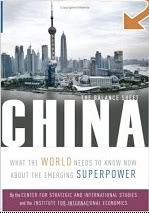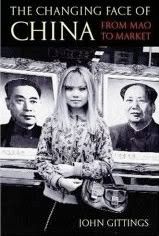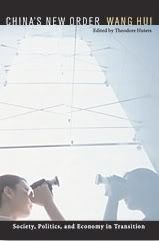Chinese political reform: official discourse, real meaning
Li Datong
7 - 3 – 2007
China's annual National People's Congress (NPC) and the Chinese People's Political Consultative Conference (CPPCC) - which convened on 5 March 2007 - seem this year to have a little more substance to them than usual. A notable inclusion on the agenda is a draft of a property-rights law, the first in China that clearly aims to protect private ownership. The draft law has passed through seven deliberations by the NPC already, each time attracting widespread public debate. Conservative academics have branded it unconstitutional, in turn drawing heavy criticism from reformists. Historically, hotly disputed items are shelved in China. If this law is passed, however, it would be fair to say that the government has made a bold step in bringing the Chinese legal system in line with international standards.
On the eve of the "two conferences", premier Wen Jiabao released an article expounding both domestic and foreign policy, carrying his own personal style. This kind of personal statement by a leader in China is quite rare and momentarily sparked mixed readings from overseas news media. The real interest of the article was that, while Wen declared that China was still in "the first stage of socialism", he stressed the need for widespread improvements: to improve lagging productivity, to increase the standard of living and to discuss the "imperfections" and "immaturities" of the socialist system. "Gradually bringing about social justice and equality" was as important a duty as the development of productivity, he said.
The critical touch is significant, yet Wen's article is also part of a standard style of official discourse that itself demands attention. Indeed, the Chinese academic world has long been dissatisfied with the routine "correction" discourse that marks public acknowledgement of domestic-affairs problems. It is not mere acknowledgment, but true clarification of the essence of such problems that is required.
The official way
A characteristic sequence in Chinese politics is that the ruling party first sets out to confirm what "current society's major conflicts" are, and then, based upon this knowledge, it forms policy to address them. So what are China's current "major conflicts"? The political report of the Chinese Communist Party's (CPC) sixteenth National Party Congress in 2002 - presented by Jiang Zemin - pointed to the "the ever-growing material and cultural needs of the people and conflicts within backward society".
In fact, this very problem was stated in the report of the CPC's eighth National Party Congress in 1956 but was soon after retracted by Mao Tse-tung. Mao felt that the primary conflict in Chinese society was "class struggle". After years of political turmoil lasting beyond the revolutionary leader's death, the earlier societal-modernisation issue was again set down at the 3rd Plenary Session of the eleventh CPC central committee in 1978. The move sprang from the widespread poverty and the extreme shortage of material wealth at every level of Chinese society at the time. Deng Xiaoping's national policy, to "focus on the central task of economic construction", was based precisely upon such an understanding. This understanding, for a very long time, reflected China's true situation.
The problem now lies in the fact that after thirty years of economic development, China's national strength has increased over thirty-fold and its people's standard of living has improved hugely. Today's China has left the country of 1978 far behind. In certain areas and among certain groups absolute poverty still exists, but it is no longer China's main worry. Figuratively speaking, people now "pick up their bowls to eat meat, and put down their chopsticks to swear". The improvements in material wealth have not appeased society's discontent, but made it more acute. Every year there are over 10,000 incidents of people "defending their rights" in China, and all of these complaints and protests stem from a lack of public assets.
The public good
What are "public assets"? They are material goods or services provided by the government from money gathered from taxpayers, and designed to serve the common good. Parks, roads and nature reserves are examples of concrete public assets, while just laws, policies and systems are examples of abstract services which also are public assets. The efficient and fair provision of such assets is a fundamental basis for ensuring harmonious social development.
The shortage of these assets has been the major source of conflicts in today's China. There are numerous examples:
* protests against an unfair justice system stem from the unobtainable guarantee of legitimate legal rights
* questioning the distribution of state property results from the unfair privatisation of public property
* farmers' defence of their land follows from the inability to own legitimate land rights
* conflicts in village elections arise as a result of the ruling party wielding its rights over the people's
* the inability to attend school means that potential learners can't share in the most rudimentary of public educational resources
* not being able to see a doctor means a person can't enjoy the mere guarantee of medical treatment
* the inability to afford a house results from the fact that the majority of low-income earners cannot benefit from housing allowances
* private businessmen protesting against the monopolisation of state-owned firms reflects the lack of guarantees of fair business competition
* discontent amongst academics grows out of "constitutional" restrictions on free press and freedom of publishing.
The people's demand for public assets has long constituted the major conflict with the government in contemporary Chinese society. No government elected by its own people would dare let the provision of public services be so neglected, but China's - almost free from electoral control - has been able to let this basic problem escalate. Because of this, the call to "create social justice and equality" is meaningless. The only way of truly resolving conflicts like those mentioned above is by respecting the Chinese people's true constitutional rights, giving them real input in the decision-making process, and lobbying officials for more and better public assets. This is also the fundamental meaning of Chinese political reform.
Li Datong is a Chinese journalist and formerly editor of Bingdian (Freezing Point), a weekly supplement of the China Youth Daily newspaper.
Link




0 Comments:
Post a Comment
Subscribe to Post Comments [Atom]
<< Home